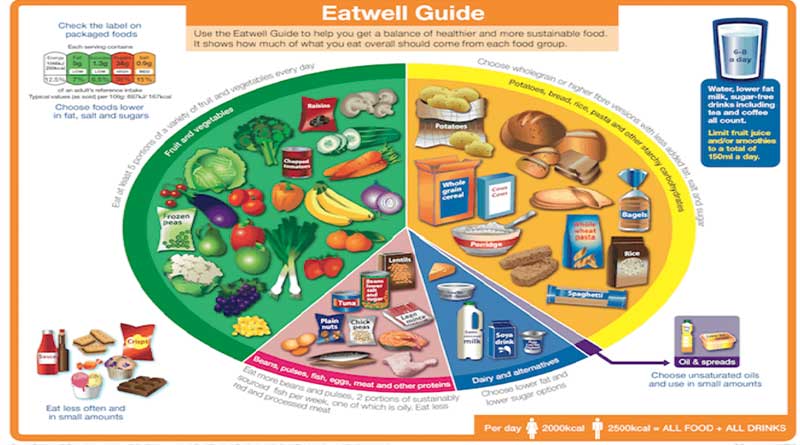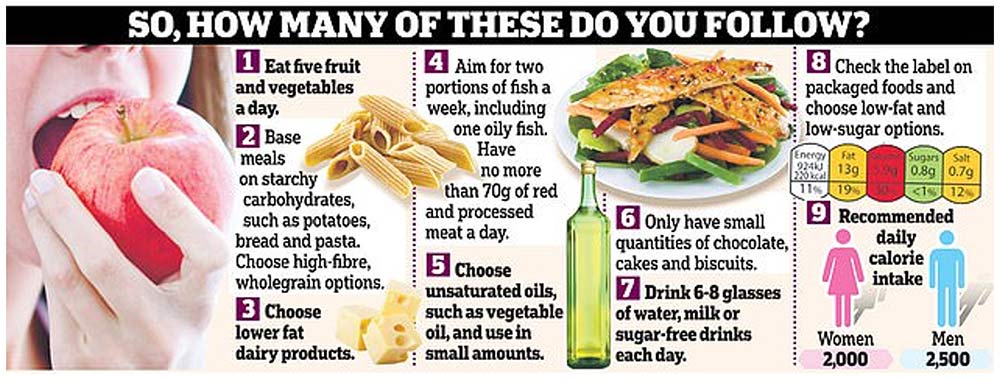The Eatwell Guide & Mortality

Executive Summary
* A paper was recently published, which claimed that adherence to the UK 'Eatwell' Guide (EWG) could reduce your risk of dying early and lower your environmental footprint.
* This note looks at the dying early claim. Next week's note will look at the environmental footprint claim. The paper was an epidemiological study and so can only suggest associations.
* The study defined nine food and nutrient groups, with recommended levels of consumption specified in the EWG: “fruit and vegetables, oily fish, other fish, red and processed meat, total fibre, total salt, free sugars, saturated fatty acids and total fat.”
* The study reviewed data from three large UK studies, comprising over half a million people (dominated by 464,000 women in one study) and presented a meta-analysis for the impact of each of the nine recommendations.
* Seven of the recommendations failed to reach statistical significance. The paper thus found that there is no evidence for most of the EWG recommendations.
* The other two recommendations (fruit and vegetables and saturated fat) only achieved statistical significance in the women-only study, so men can ignore those also. The risk ratios for these two recommendations were 5-10% which is multiples away from suggesting causation. The study is subject to the usual flaws of epidemiological studies.
* The paper also looked at the number of recommendations followed and grouped people into those who followed 0-2 recommendations, 2-4 or 5-9. Comparing the lowest adherence group (0-2) with the highest (5-9) was also only statistically significant in the women-only study. The risk ratio was 7% – again – so small as to be inconsequential.
* The conclusion of the paper should have been, data from over half a million people found virtually no evidence to support the UK 'Eatwell' Guide recommendations.
Introduction
I was browsing the morning news and came across the following graphic in the UK Daily Mail (Ref 1). I was able to trace the graphic to a press release entitled “Following 'Eatwell Guide' diet could reduce your risk of dying early and lower your environmental footprint” (Ref 2). The journal article behind the press release was published in the BMJ Open. It was called “Health impacts and environmental footprints of diets that meet the Eatwell Guide recommendations: analyses of multiple UK studies” (Ref 3).

I confess to having ‘taken the micky’ out of the graphic’s nine recommendations by summarising them in a tweet: “The Eatbadly Guide explained: 1) Eat carbs; 2) Eat loads of carbs; 3) Avoid natural fats; 4) Limit meat & fish – far too nutritious; 5) Eat unnatural fats; 6) Have some cr@p; 7) Drink a made up amount (you'll be thirsty with all that starch); 8) Eat fake food; 9) Count calories” (Ref 4).
The rest of this article is available to site subscribers, who get access to all articles plus a weekly newsletter.
To continue reading, please login below or sign up for a subscription. Thank you.




